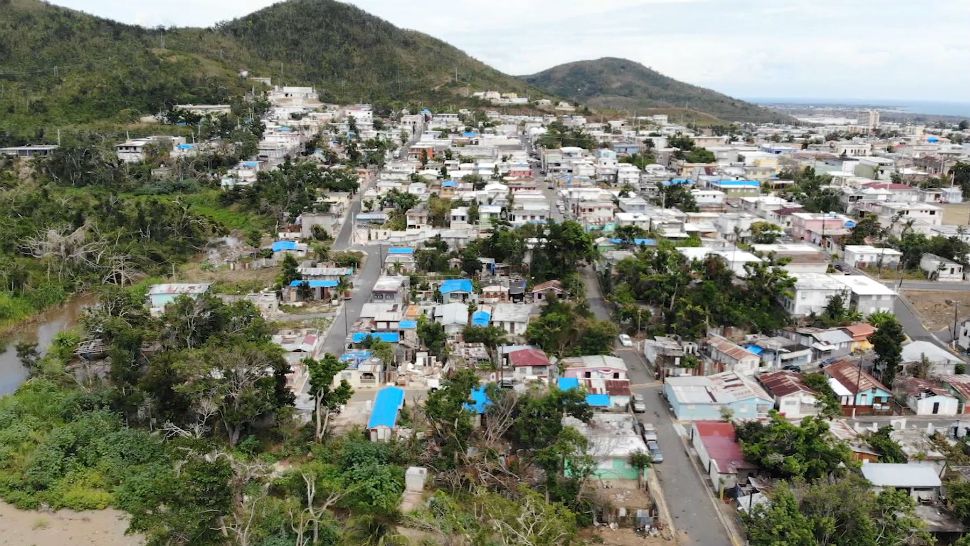WASHINGTON — A new FEMA report analyzing the federal agency's performance in last year's hurricane season slams its response in Puerto Rico after Hurricane Maria.
- FEMA report criticizes agency's handling of 2017 hurricane season
- After-Action Report says FEMA wasn't prepared to help Puerto Rico
- Report says FEMA struggled with distribution of supplies
- READ IT: 2017 Hurricane Season FEMA After-Action Report (PDF)
The 2017 Hurricane Season FEMA After-Action Report released Thursday is a blistering critique of the agency tasked with helping people during what is often one of the most challenging periods of their lives.
It documents an agency not ready for what was one of the busiest hurricane seasons in memory as three major storms slammed the U.S.
Much of the report's criticism centers on the Federal Emergency Management Agency's handling of the aftermath of Hurricane Maria. It portrays an agency ill-prepared, underestimating how much food and supplies were needed.
The report says officials took days to get supplies to the island. After they arrived, distribution became a problem, as many truck drivers were themselves working to deal with their own storm damage.
The agency then struggled to track supplies, the report says.
Many families on the U.S. territory still do not have electricity, 10 months after Maria slammed into the island.
In a note included in the report, FEMA Administrator Brock Long shifted some of the focus to local and state governments, saying they need to step up.
"While FEMA has and will continue to work with all levels of government to get much needed commodities to survivors, the hurricanes also showed that governments need to be better prepared with their own supplies, to have pre-positioned contracts with enforcement mechanisms, and to be ready for the financial implications of a disaster," Long said.
From the outset of the hurricane season, FEMA was not sufficiently staffed and short thousands of workers, the report says. The agency then became even more stretched thin as the season wore on.
Now that we're in the 2018 storm season, FEMA is taking steps to improve outcomes and help survivors. The report says FEMA is increasing its meal and water supplies six fold in the Caribbean. It's also adding hundreds of generators to its inventory and improving training and preparation of its staff.
"I’m extremely proud of how FEMA and the whole community performed under extraordinary circumstances," Long said in a statement. "We are prepared for the 2018 hurricane season and have already applied lessons learned from last year to improve how we as an emergency management community do business."




